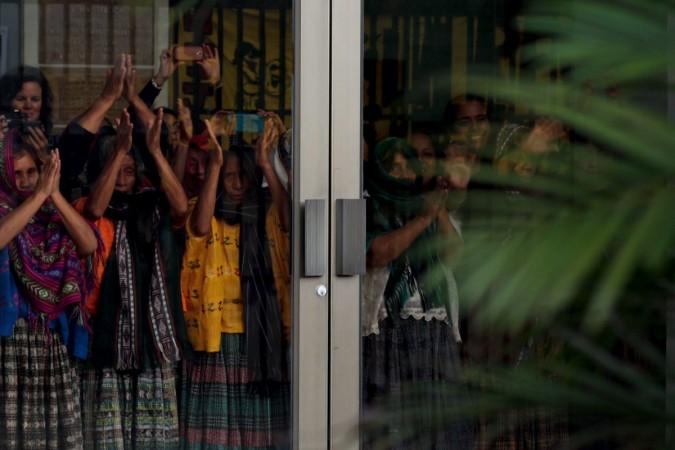
A former Army officer and a paramilitary personnel in Guatemala were sentenced Friday to 120 years and 240 years in jail, respectively for raping indigenous women and keeping them as sex slaves during the country's almost-four-decade-long civil war. The case had been ongoing for three decades.
During the 1960-96 civil war in the country between military and Marxist Guerilla forces, a retired officer, 2nd Lt Esteelmer Reyes Giron, and Heriberto Valdez Asij, a civilian who was then enrolled with the paramilitary, enslaved and raped indigenous women, and caused forced disappearances of people, reported the Associated Press. At least 245,000 are said to have died during that period.
Giron was charged with keeping 15 women as domestic and sex slaves and killing a woman and her two daughters. Asij was charged with domestic and sexual slavery and the forced disappearance of seven men.
"These historic convictions send the unequivocal message that sexual violence is a serious crime and that no matter how much time passes, it will be punished," CNN quoted Erika Guevara-Rosas of Amnesty International as saying. "It is a great victory for the 11 women who embarked on a 30-year-long battle for justice.
"We the judges firmly believe the testimony of the women who were raped in Sepur Zarco," the AP quoted Yassmin Barrios, chief judge of the court, as saying. "Rape is an instrument or weapon of war, it is a way to attack the country, killing or raping the victims, the woman was seen as a military objective."
As many as 11 women deposed in the court about the crimes that took place between 1982 and 1983 in Sepur Zarco military base in northern part of the country.
The military initially caused the men to "disappear" and later enslaved the women belonging to the Q'eqchis community when they went to the base to enquire about the missing men.
The ruling was reportedly welcomed with cheers from the attendees of the court hearing. "This is historic, it is a great step for women and above all for the victims," Nobel Laureate Rigoberta Menchu, who attended the hearing, was quoted as saying by the AP.
Giron's defence lawyer said he would appeal against the ruling in a higher court.
















